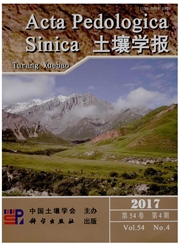

 中文摘要:
中文摘要:
采用田间试验,对强化栽培(SRI)和常规水作(TF)条件下稻田土壤微生物数量、微生物量、土壤酶活性及相关养分含量进行了研究。结果表明:与常规水作相比,强化栽培增加了土壤细菌、放线菌、真菌数量,分别提高了53.1%~173.8%、61.7%-229.4%、10.0%~55.9%,统计差异显著(p〈0.05)。强化栽培土壤微生物量碳、微生物量氮比常规水作提高了12.2%~43.6%,22.7%~175.4%,统计差异显著(P〈0.05)。与常规水作比较,强化栽培提高了分蘖期土壤脲酶、碱性磷酸酶、转化酶、过氧化氢酶活性,分别为12.6%、30.0%、15.1%、13.8%;强化栽培也显著增加了土壤碱解氮含量,但有效磷含量差异不显著。
 英文摘要:
英文摘要:
A field experiment was conducted in 2004 to investigate effects of the system of rice intensification (SRI) on soil biological properties. The treatment was compared with the control (TF, Traditional Flooding) in soil cuhureable microorganisms (bacteria, fungi, actinomycetes) , microbial biomass C and N, soil enzyme (urease, invertase, alkaline phosphatase, catalase) activity and soil available N and P. Treatment SRI was significantly higher than the control in population of cuhureable microorganisms, microbial biomass C and N, regardless of sampling date and 12.6% , 30.0% , 15.1% and 13.8% higher in activity of urease, alkaline phosphatase, invertase and catalase, respectively at the tillering stage. The treatment was also higher than the control in soil available N, and however, showed no significant difference in soil available.
 同期刊论文项目
同期刊论文项目
 同项目期刊论文
同项目期刊论文
 期刊信息
期刊信息
